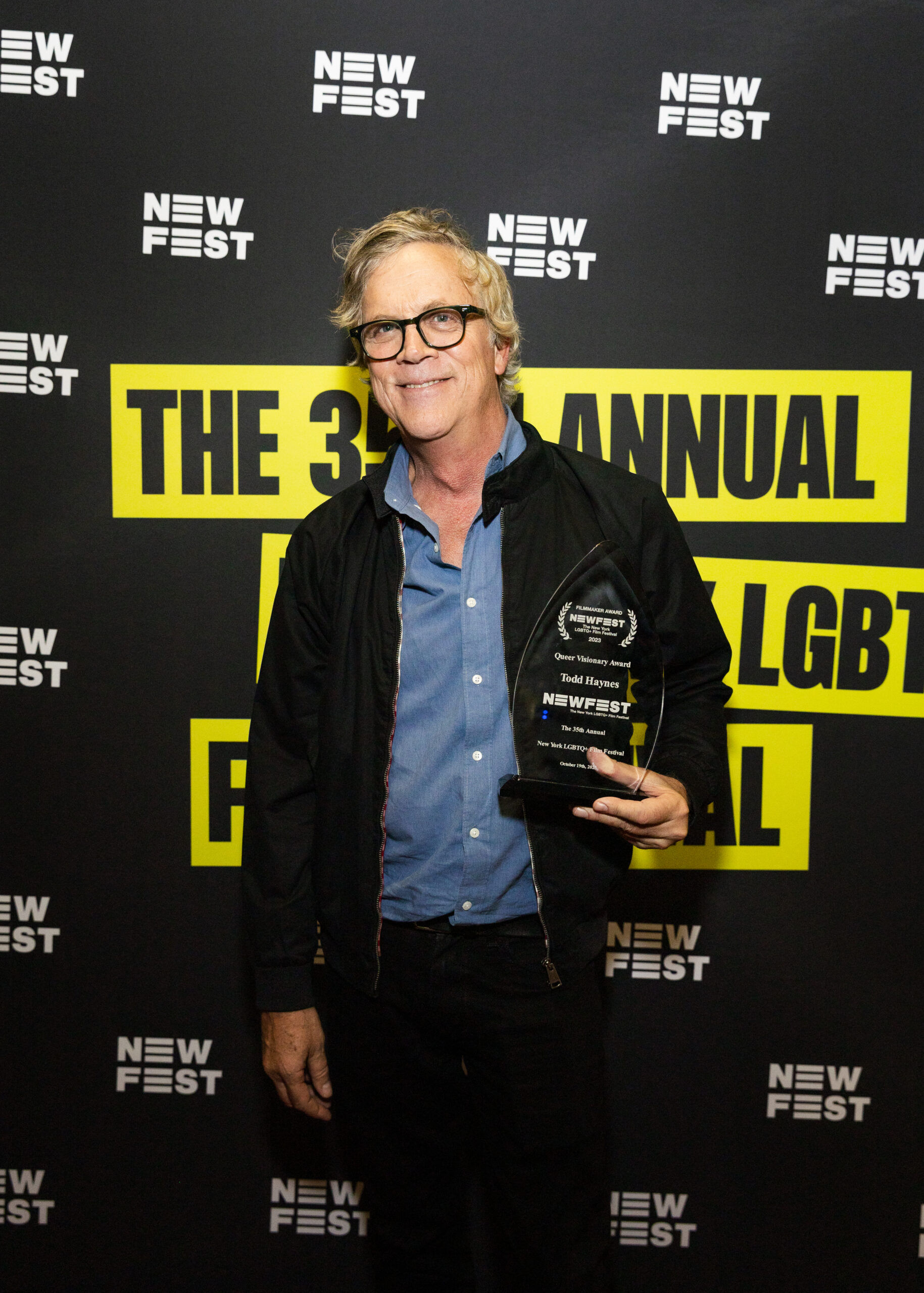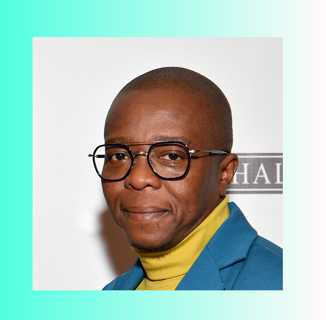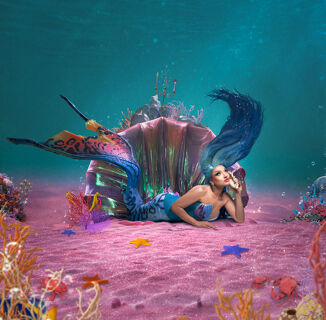One of contemporary cinema’s greatest filmmakers, Todd Haynes nevertheless remains curiously underappreciated. From the birth of the New Queer Cinema and the boom of 1990s American Independent Film through the streaming age and oppressive dominance of multi-verse comic-book blockbusters, Haynes maintains a meticulously distinctive queer voice and impressive individuality. After four decades and celebrated films like Safe, Far from Heaven, and Carol, Haynes finds himself on a new precipice with his latest film May December.
Produced with his long-time collaborator, the uber-indie Christine Vachon of Killer Films, May December debuted in competition at the Cannes Film Festival where it criminally went unawarded before being acquired by Netflix. Aided by the leading streamer’s well-oiled marketing department, Haynes and his work are now fully in the spotlight. After a respectable theatrical release, the film debuts December 1st on Netflix. The release promises to give Haynes his largest audience to date and coincides with the opening of a full and well-deserved retrospective and exhibit of his work at the Museum of the Moving Image.
Haynes is a shapeshifter who embraces experimental formalism. Each film is distinctively Haynesian, the body of work united by his preoccupations with exploring a mix of identity, desire, and performance through a very queer lens. If there is one unifying force behind Hayne’s filmography it might be the emotional power of and behind artifice, which perfectly encapsulates his latest May December.
Loosely inspired by the Mary Kay Letourneau scandal, May December looks at the relationship between Gracie (Julianne Moore) and Joe (Charles Melton) as their youngest children are about to graduate from high school. Decades after their criminal love affair, Elizabeth (Natalie Portman), a Julliard-trained actress researching her next role, arrives and throws their domestic balance out of equilibrium. Samy Burch’s searing and darkly comic script combined with Haynes’ masterful understanding of melodrama creates a potent tension of mood and style. Anchoring the film is a trio of tour-de-force performances from Portman, Melton, and Haynes muse, Moore. Perhaps the most fascinating element of the film is the way that Haynes explores the theme of women watching women. As Elizabeth studies Gracie, there is a transference of identity and undeniable queer subtext to their relationship that evokes films such as Ingmar Bergman’s Persona and Robert Altman’s 3 Women, which Haynes cites as influences. The final scene between the two is equal parts unnerving and exhilarating.
Entertainment with an edge
Whether you’re into indie comics, groundbreaking music, or queer cinema, we’re here to keep you in the loop twice a week.
Related:
Chasing Chasing Chasing Amy
The film is a navigation of Sav Rodgers’ identity as a filmmaker, a trans man, and a romantic partner, filtered through his relationship with Chasing Amy.
It was equally exhilarating talking to Haynes the day after he accepted his Queer Visionary Award. His approach to and appreciation of film is deeply and equally intellectual and instinctive. What comes through most from speaking with Haynes is his excitement for making and experiencing art. Haynes spoke with INTO about his career, approach to queer filmmaking, and his love of zooms.
___________________________
INTO: I wanted to start with one of the most impactful influences your work had on me while I was in grad school. In an interview that I can’t now place after searching for the syllabus, you discussed distinguishing queer cinema and gay cinema. It was about how a truly queer cinema needs to push beyond representation and interrogate the relationship between form and content. What I’ve most admired about your filmmaking is the marriage between what your films are about and the careful way they are constructed. What do you think about the current state of queer cinema and the current focus on queer representation over formal experimentation?
HAYNES: We touched on that a little bit at Newfest, with Tom Kalin [who interviewed Haynes at the event]. I think, particularly in the transition from my first feature Poison to my second feature Safe, it started to raise questions about “what makes a gay movie.” The term “New Queer Cinema” had been coined by B. Ruby Rich after Poison and a lot of other films with queer content had come out that really defined something new in the market and independent film. People were seeing these films; it wasn’t just about the makers, it was received by critics and audiences, and the question became “Is Safe a ‘queer film’?”
What always interested me were questions about how we see the world differently and the importance of a marginal cinema advancing or challenging its formal traditions and conventions. Focusing on the way we situate ourselves as viewers beyond solely fixating on representation. I do think we are in a particularly accelerated moment where identity politics have re-dominated the discourse.
What’s really interesting about May December is that we didn’t have the time to ponder how the film might upset or challenge people’s own moral or ethical ideas and how they may come into the theater hoping to leave with their own worldview confirmed. It was my job to disrupt that inclination. I hoped that people would be aware and struggle with that feeling. And it’s been very interesting because, in fact, people are really enjoying that challenge.
I had an interesting experience of seeing the film sort of back to back. It was amazing to see how the films peculiar mix of dark comedy and melodrama connected with the audience. Your films have always had this fascinating balance between cerebral formalism and emotional resonance, especially films like Velvet Goldmine, Far from Heaven, and I’m Not There. How important is it for you to strike that balance and how is it accomplished?
From the beginning, I’ve been extremely interested in traditional ideas about narrative form and genre. These are inherited languages and knowledge that we all share and that we all bring to the experience of watching movies. Movies happen in the mind of the spectator. They are just these reflections on the wall until we invest in them and bring them to life. We bring this machinery, this knowledge, this fluence of different forms, styles, and genres to each film.
I learned it right away with the unexpected reception of Superstar. The reach of that movie was bigger and broader than I would have ever thought. Audiences bring so much sophistication to their movie-going practice. You see it now with cable and streaming, everyone is flipping around quickly all the time and can immediately identify what kind of film they are viewing. I thought that’s what I wanted to get into.
What always interested me were questions about how [queer people] see the world differently and the importance of a marginal cinema advancing or challenging its formal traditions and conventions.
Todd Haynes
All of those early films set up these little impediments to seamless, hand-delivered experiences that arouse a spectator’s thinking alongside their feeling and unite both. Superstar is almost the purest example. You have your expectations lowered because you’re watching this sort of recreation of the star story genre with the impediment of the doll construct. You think you’re going to laugh and so you don’t see the emotional impact of the film coming. I think it’s also true in Far from Heaven, where there are all these distances, references, and nested layers, but at a certain point, it sneaks up on you. It’s about your own life. It’s about desire and feelings that are incredibly close to you.
I would imagine, when not working with dolls, your actors are essential to striking that balance between distance and emotional connection. The central trio of performance is mesmerizing. I was particularly struck by the contrast between Portman and Moore’s more distant and mysterious characters and the very exposed and raw Melton’s Joe. The characters seem to reflect that relationship between the impediments and connections you were speaking of in your filmmaking.
Yes, it’s all very well wrought and conceived in the script. Sammy’s ideas and instincts were so sound and resonant. The whole context of the film, this 20-something-year gap that exists between the first meeting of Gracie and Joe up to the arrival of Elizabeth, creates all this space to contemplate how not only do we survive crises but also how we all block, deflect, repress, and deny at the same time. The way we don’t consider the choices we make in our lives to survive ourselves. They are all doing something similar. You’re almost not even seeing the potentiality of the children and Joe until you’re kind of ready for it. It’s not until the strength of these two women and their compelling battle of wills starts to exhaust you that a space opens for Joe. It’s that final third of the film where you’ve seen all these repetitions in Joe’s life playing out and start to see you’re ready, or he’s ready to finally think about himself and what happened to him.
Outside of character and performance, there were two technical issues that stood out the zoom and the music. The film is relatively restrained, but those two formal elements stand out and appear throughout the film. How did these relate to this idea of impediments and emotion?
The zoom is the most beautiful thing in the world. It is a pure artifact of the camera. It doesn’t exist in real life. It’s a completely cinematic property. Zooms have a bad rap, but it’s something the great director of photography Harris Savides, who the DP of May December Chris Blauvelt studied with, understood. People think they passé or cheap, or too easy. It’s complete bullshit. From director to director in 70s cinema which we all revere, the zoom is there. It’s in Altman. It’s in Kubrick. Nicholas Roeg. Richard Lester, everywhere. There are zooms in every film of mine, with the exception of Far from Heaven, every single film uses some. Zooms are a language, that’s a psychic language, that’s a psychoanalytic language. It’s how we look and how we project ourselves into information. You know a treatise; a tome should be written about the history of zooms.
It’s just this way that these characters are looking at each other from a distance. Trying to get a closer, better look. It’s like a hunt.
Yeah, because all moves are about people looking at other people. Who isn’t looking and when they are looking are they actually seeing the other person. Or can they even see themselves when they’re looking in a mirror all the time. The zoom starts to do something beyond what us watching them from a distance can do and that’s what we keep repeating.
It’s that kind of artificiality of the zoom that I thought worked perfectly with the heightened score. From the hot dog line, which perfectly sets the tone of the film, to the final faceoff between Gracie and Elizabeth that creates shivers on screen and in the audience. It’s this perfect concoction of those impediments you discussed perfectly translating into emotional resonance.
In addition, I was drawn to this kind of theme of women watching women which is a personal favorite. The way in which there is this transference of identity between Gracie and Elizabeth as well as this underlying erotic tension. As a group of friends exited the screening, someone had found this tweet complaining about the inclusion of the film at NewFest. They were arguing that the film was not queer enough and that the only direct queer representation would be Georgie. I wanted to hear more about the exchange of looks and identity between the women as well as its connection to a queer eroticism.
I refrain from everything having to be based on content, i.e. who has sex with who behind their bedroom door as a reductive way to define identity, sexuality, and a way of looking at the world. Because it just bores me. I think human sexuality and identity are so much more subtle and unstable. There is more nuance. We all share way too many kinds of desires and ways of looking with people who we wouldn’t necessarily call gay. There is so much more linking us.
There’s a tradition in movies alone that’s just about female subjects. It is shared by directors, some of whom were actually, coincidently, or maybe possibly gay, and some who were not. It doesn’t really matter that Cukor was gay and Sirk was not for what they did for film. I just don’t care what people do in bed as a way of defining or legitimizing them. But they all want to look at stories about women. Why? Why is the home and the domestic space so linked to queer traditions around subject matter and style? That’s what’s interesting. Female subjects are interesting.
Yes, always.
Not that they might be attracted to each other as lesbians or something. It’s so much more complicated.
That’s what I think the film does so well. Their connection is very subtle and fluid.
There’s attraction and aversion between these two women. There is this battle of wills and I think Elizabeth is a predator. They’re both predatory, which is so wild and weird, and not like female characters in my other films. Elizbeth uses her beauty, her attractiveness, as part of her privilege to get where she needs to go come what may at any cost. When Joe doesn’t respond in the normal ways to her seductive feelers she doesn’t know what to do. She’s kind of at a loss. Gracie is there too and she kind of banks off some of that attractiveness to see it in herself and that’s where you feel a lot of the tension in their scenes.
Particularly the scene where they are putting on makeup and Elizabeth’s sort of orgasmic transformation into Gracie throughout the film.
There’s an onanistic thing going on with this actress. You know and there’s a self-pleasuring going on. She’s looking at herself in the mirror and she’s about as much into a beautiful woman in the mirror as any lesbian might be. You know cause she’s there. We get to watch it all unfiltered.
I wanted to end with two of the most amusing parts of the film for me as a viewer. First, I need to know if you’d be interested in directing an episode of Elizabeth’s show Nora’s Ark? I’m also hoping Netflix provides you with the funds to film something for a Criterion release.
(Laughing) What’s so funny we couldn’t get the rights to the name. It was one of the latest things in the legal process to get permission for a name for her show. We spent the entire shoot going it can’t be called Animal Hospital, what’s it going to be called? We kept coming up with ideas…
Well, Nora’s Ark is perfect…
It’s so good
It’s where the second viewing was so important. I caught something about an elephant surgery and thought “Oh, she plays an emergency veterinarian.”
Exactly, it’s like Grey’s Anatomy, like one of those shows. And no, I don’t want to direct one.
It’s just this genius element that gives you so much context for what Elizabeth’s career really is and how she like Gracie is projecting a sense of grandiose importance on her work similar to Gracie’s business. This leads to my final question: if Gracie could make you bake you anything what would it be?
(Laughing) I want to taste the upside-down cherry caramel cake. I really like cherry. For some reason, Julianne thought she was making an upside-down pineapple cake. I was like no Julie read the script again. Because those are completely different.
Yeah, they mention pineapple upside-down once in the film, but when they are backing together she’s so particular about the appearance of the cherries, which speaks to obsession with how things look on the surface.
I was like no, no. It’s definitely cherries. Ask Sammy! Julianne was like “Nuh uh, it’s pineapple”. It’s definitely cherry. That’s what I want to taste.♦
Don't forget to share:
Help make sure LGBTQ+ stories are being told...
We can't rely on mainstream media to tell our stories. That's why we don't lock our articles behind a paywall. Will you support our mission with a contribution today?
Cancel anytime · Proudly LGBTQ+ owned and operated
Read More in The INTO Interview
The Latest on INTO
Subscribe to get a twice-weekly dose of queer news, updates, and insights from the INTO team.
in Your Inbox














